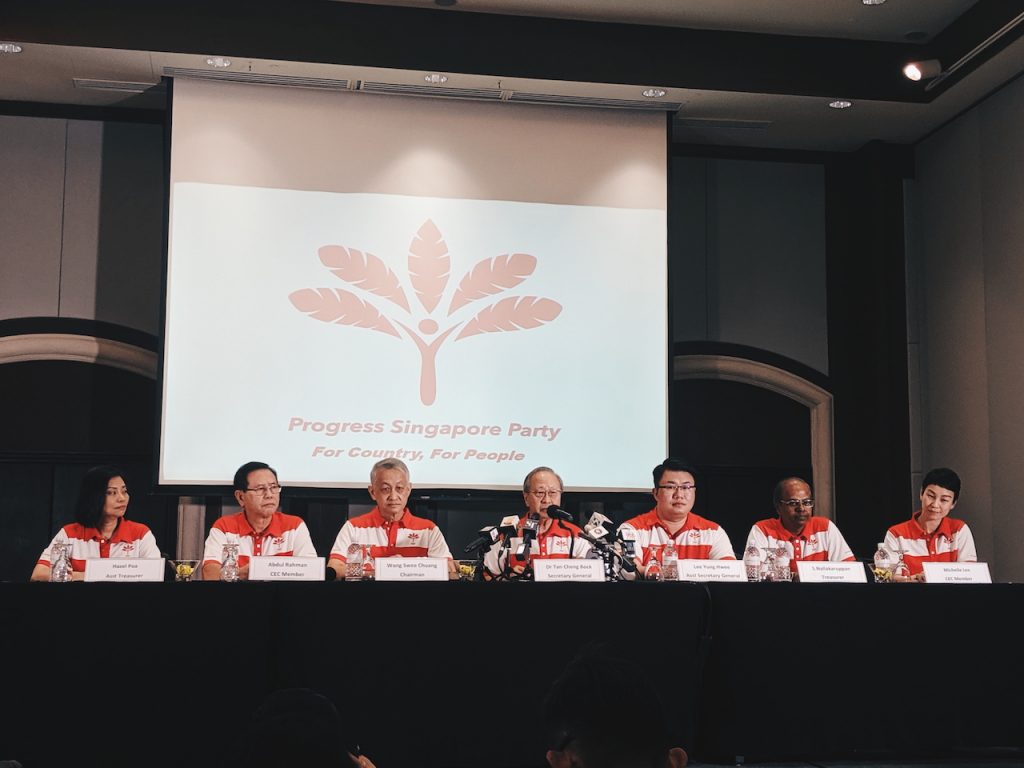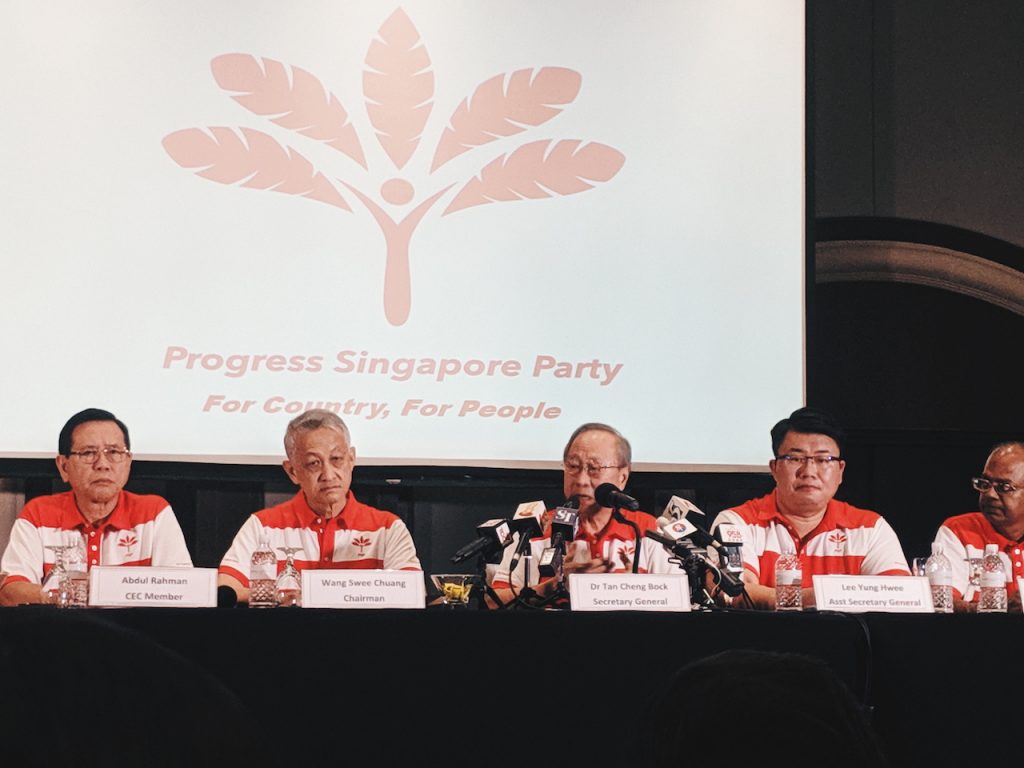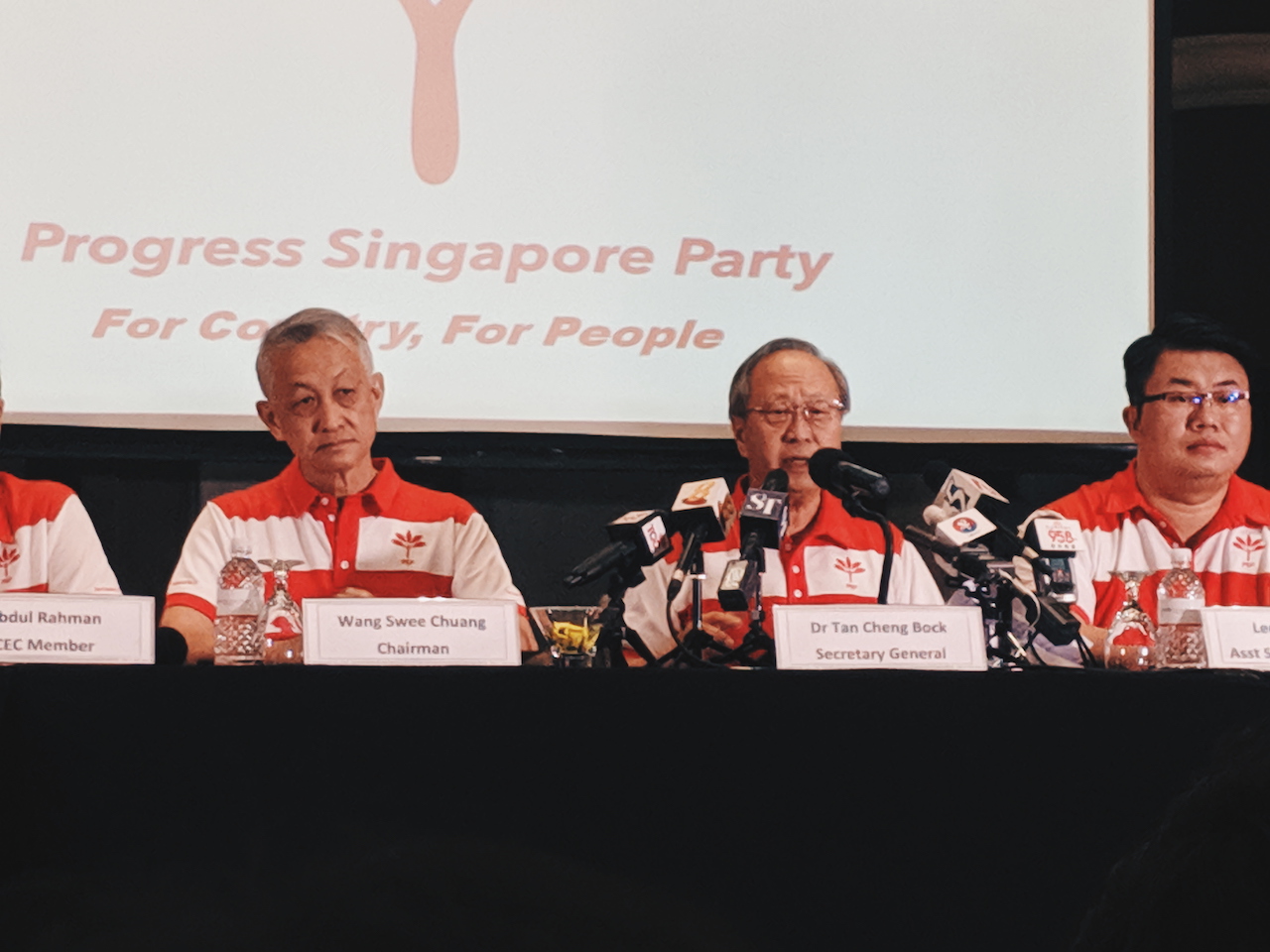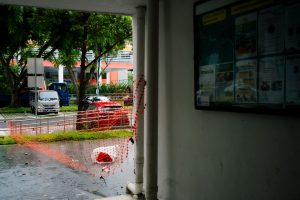As far as I’m concerned, press conferences are either a waste of everyone’s time or the most effective tool an organisation can use to control their narrative. The latter transforms a staged public relations event into a chance to position oneself in a favourable light.
After all, there’s nothing more valuable than having a captive audience; a room full of reporters with a pen, paper, and recorder at the ready to note down every word.
In this regard, the Progress Singapore Party (PSP) had the ball in their court—and they dropped it. As a new political party in a country already saturated with opposition politics, they completely missed the opportunity to work with the media during their press conference held on 26 July to mark their inauguration.
One of the key problems with Singapore politicians—on both sides—is their seeming inability to talk about specific policy implementations on the fly. They are often more public figure than policymaker.
As an unfortunate result, their speeches usually end up rehashing motherhood statements about the sorry state of the government or the opposition, without painstakingly detailing how their party would better serve Singaporeans.
At the risk of painting PSP with a broad brush, their inauguration left little to be desired for their future in Singapore politics.

For a start, the introductory speech mostly covered the “erosion” of transparency, independence, and accountability in the government—one of the main reasons that PSP was started. To solve this, Dr Tan believes Singapore needs a “good political system”, which means “a robust system of checks and balances”. (Since the event, current ministers have come out to rebut Dr Tan’s comments about the government “gone astray”.)
He also emphasised that the PSP values a “good mix of people, a wide variety”, who “won’t be just scholars”. As reiterated multiple times throughout the event, what is “most important is that their heart is in the right place”.
Finally, he reinforced the goal of PSP as a “unifying catalyst” to bring Singaporeans together to combat the social divide caused by inequality. In a call to action for PSP’s party launch for Singaporeans on 3 August, he asked for “many patriotic people to make this happen” to “build up [their] strength and capabilities” and “expand [their] reach and support base”.
While I’d been to enough press conferences so I don’t expect anything exceptionally illuminating or invigorating, I’d hoped we could skip the political platitudes, not least because existing online sentiment lauds Dr Tan and his eventual party as the perennial ‘credible alternative’ that Singaporeans apparently want.
Yet, his introductory speech felt… empty and disappointing.
Since the event, media reports have discussed what was covered, from Dr Tan’s views on whether Lee Hsien Yang would be part of his party to the lack of transparency in the current government. Reports didn’t, however, cover the single glaring point about the press conference: PSP’s repeated evasion of all questions pertaining to their policy and plans.
During the Q&A session after his speech, several reporters (including ourselves) repeatedly pressed Dr Tan for the issues or policies that PSP planned to reveal or amend.
I, for one, highlighted the fact that the upcoming General Elections would be the first time Gen Z was voting. I wanted to know whether the party had a sense of the issues this generation cared about, and the steps they had to address these issues. In response, Dr Tan said the party would touch on these points at the launch on 3 August, but that they understood the current concerns of Singaporeans, such as “CPF, housing, economy, and so on”.
Another reporter followed up by asking about the policies that PSP plans to roll out, instead of merely talking about building trust with Singaporeans. Minutes later, yet another reporter asked whether there were certain PAP policies that the PSP planned to reverse.
None of us expected a detailed policy plan to be regurgitated on the spot. But over and again, the party’s response was similarly avoidant: everything would be revealed on 3 August.
In place of the practical answers that reporters wanted, Dr Tan reiterated a couple of PSP’s key positions: to create a compassionate Singapore and to act as a credible and viable alternative to the PAP.
Perhaps PSP’s strategy was to be tight-lipped about their policies because they wanted the press conference to simply highlight their reasons for setting up the party. Perhaps they believed the media would report on their ideologies, values, and beliefs, and that that would be enough for Singaporeans to believe in them.
However, this old-school mentality no longer works with an information literate generation that’s hungry for knowledge. The PSP had a chance to perform better than the ruling party, and to use their first official interaction with the media to deliver tangible statements and promises that would reassure Singaporeans they know what they are doing.
Instead, they stuck with treating the media as adversaries, and not allies. They weren’t prepared to answer hard questions with a degree of specificity required for the media to sufficiently educate and inform the public.
Unfortunately for them, no answer was also an answer.

While it’s important for a politician’s heart to be in the right place, it’s equally important for us to know that they are competent or right for the job. Given the perfect opportunity to do the latter, it is regrettable that PSP did not.
Regardless, they’ve set their own bar for 3 August. By consistently reminding the media that they’d only delve into their policies and issues during the public launch, they alluded to the promise of realistic plans and created expectations that they must now meet.
In American researcher Brene Brown’s book, Dare to Lead, she expounds on a concept I use as a gauge for whether politicians know what they’re talking about: “Clear is kind. Unclear is unkind.”
To wit, it is necessary to be specific, so that it leaves the public with little room for uncertainty and doubt. In fact, being specific should be the bare minimum from now on for all politicians.
And since we’re talking about specifics, a more productive press conference would have briefly covered at least three issues that formed the party’s focus, each outlined according to:
1. why it matters,
2. who is the demographic affected by said issue,
3. a timeline of when they plan to address said issue, and
4. at least one practical policy change or implementation that the party proposes would alleviate the issue.
With 3 August on the horizon, one can only hope PSP’s launch would at least cover these talking points, so that the public aren’t served the political equivalent of canapés—decorative but hollow statements—like the media was.
Towards the end of the hour-long session, a final reporter tried to dig out more details from Dr Tan. He asked about the policies that PSP plans to unveil and who formulated the policies. In response, Dr Tan called him “very persistent” for repeatedly trying to get answers from the team on policy and issues.
With all due respect, I disagree.
The media weren’t persistent enough. But if the party keeps up its ambiguity, and allows their narrative to remain focused on their dissatisfaction with the government instead of what they can actually do for Singaporeans, we will be.






